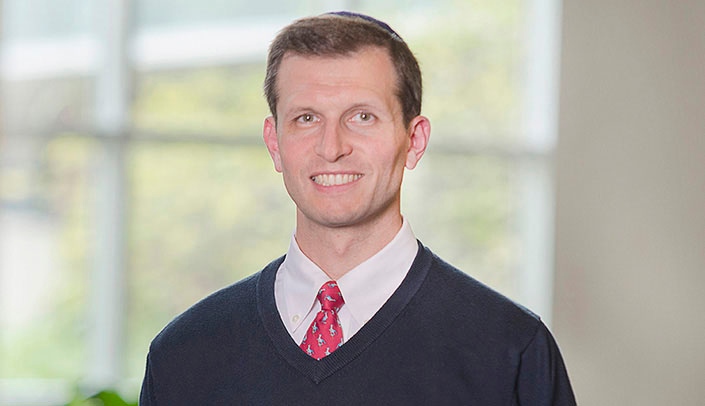The University of Nebraska Medical Center is involved in a clinical research study that will test — for the first time – whether a device approved by the Food and Drug Administration to reduce the chance of stroke in people with atrial fibrillation, can be safely implanted in people without using blood thinners.
UNMC is enrolling patients in the ASAP TOO trial to test the WATCHMAN™ Left Atrial Appendage Closure Device for a common heart problem – atrial fibrillation – a leading cause of stroke. The condition affects approximately 20% of men and 8% of women at some point in their lifetimes.
UNMC is the only institution in the region participating in the research. Globally, 880 patients will be enrolled at 130 sites in 20 countries. Researchers will follow patients for up to five years.
Atrial fibrillation happens when the heart’s electrical system gets "short circuited," reducing the expulsion of blood from a pocket in the heart called the left atrial appendage. Stagnant blood in the left atrial appendage can result in clots.
The WATCHMAN™ normally requires patients to take 45 days of blood thinners following implantation during which time the lining of the heart grows over the device to prevent clots. People who cannot tolerate blood thinners for 45 days have previously been unable to receive the device, which has been available since 2015.
The ASAP TOO trial is designed to test whether WATCHMAN can be used without blood thinners. "Stroke rates in patients with atrial fibrillation are extremely high," said Andrew Goldsweig, M.D., assistant professor of interventional cardiology, who is principal investigator of the research study at UNMC. "Blood thinners such as warfarin prevent clots. But if you can’t take blood thinners because of various health reasons and have atrial fibrillation, your default therapy has been nothing."
Dr. Goldsweig, an interventional cardiologist for Nebraska Medicine, UNMC’s hospital partner, said that in the ASAP TOO trial, patients will take just 90 days of aspirin and an aspirin-like medication — no blood thinners at all. The research study is randomized and will compare patients who can’t take blood thinners who get the device to patients who can’t take blood thinners and get no device to determine if a device without 45 days of blood thinners is better than no device.
The device is a filter that is implanted at the opening of the left atrial appendage via a catheter from the leg in a minimally-invasive procedure under ultrasound and X-ray guidance. A one-night hospital stay is typical with no other significant recovery time.
Boston Scientific, which manufactures the device, is funding the clinical trial.
About clinical trials
Clinical trials have immediate and long-term importance. They offer new therapies to those who otherwise wouldn’t have access to them. If you have a condition that is not ideally treated by a standard therapy, somebody is actively developing a better therapy for your condition. After rigorous testing in non-human models, the new therapy becomes available when approved for trials by the Food and Drug Administration.
"Participating in clinical trials is an altruistic act because it not only affects your health, but also, it potentially improves the health of hundreds of millions of other people."
Andrew Goldsweig, M.D., assistant professor of interventional cardiology, UNMC Department of Internal Medicine
UNMC research study could help millions with common heart problems
- Written by Vicky Cerino
- Published May 31, 2019

Andrew Goldsweig, M.D.